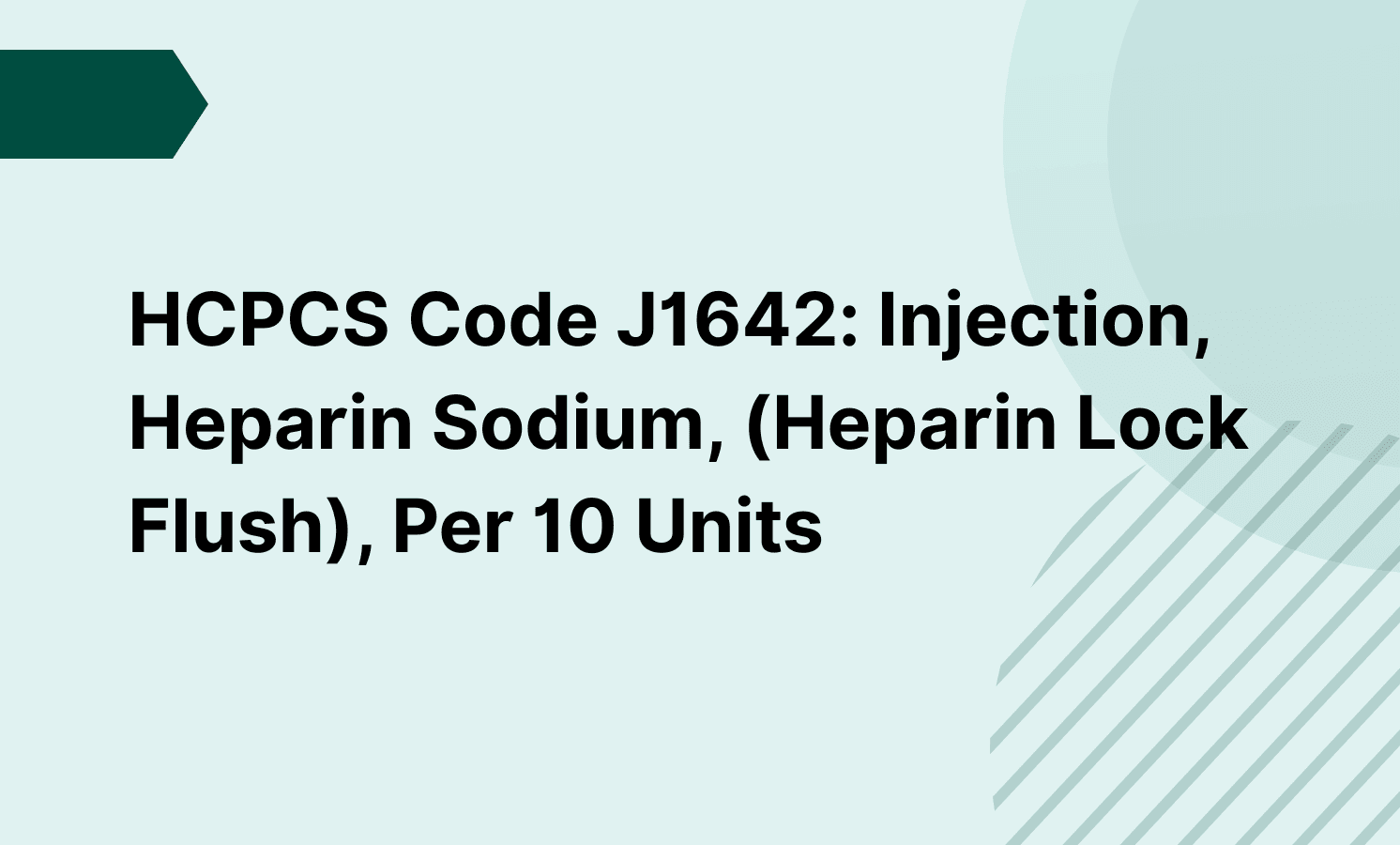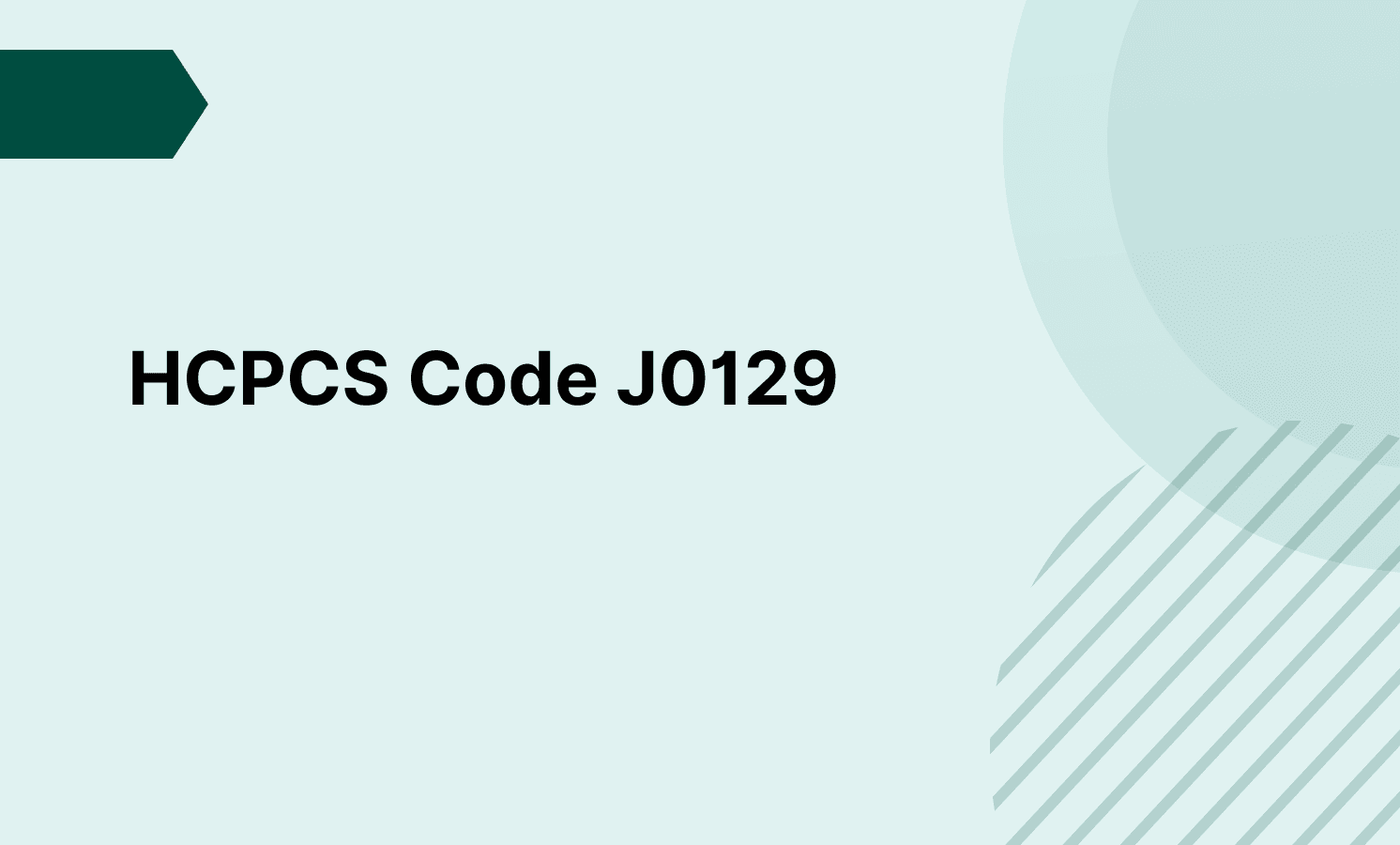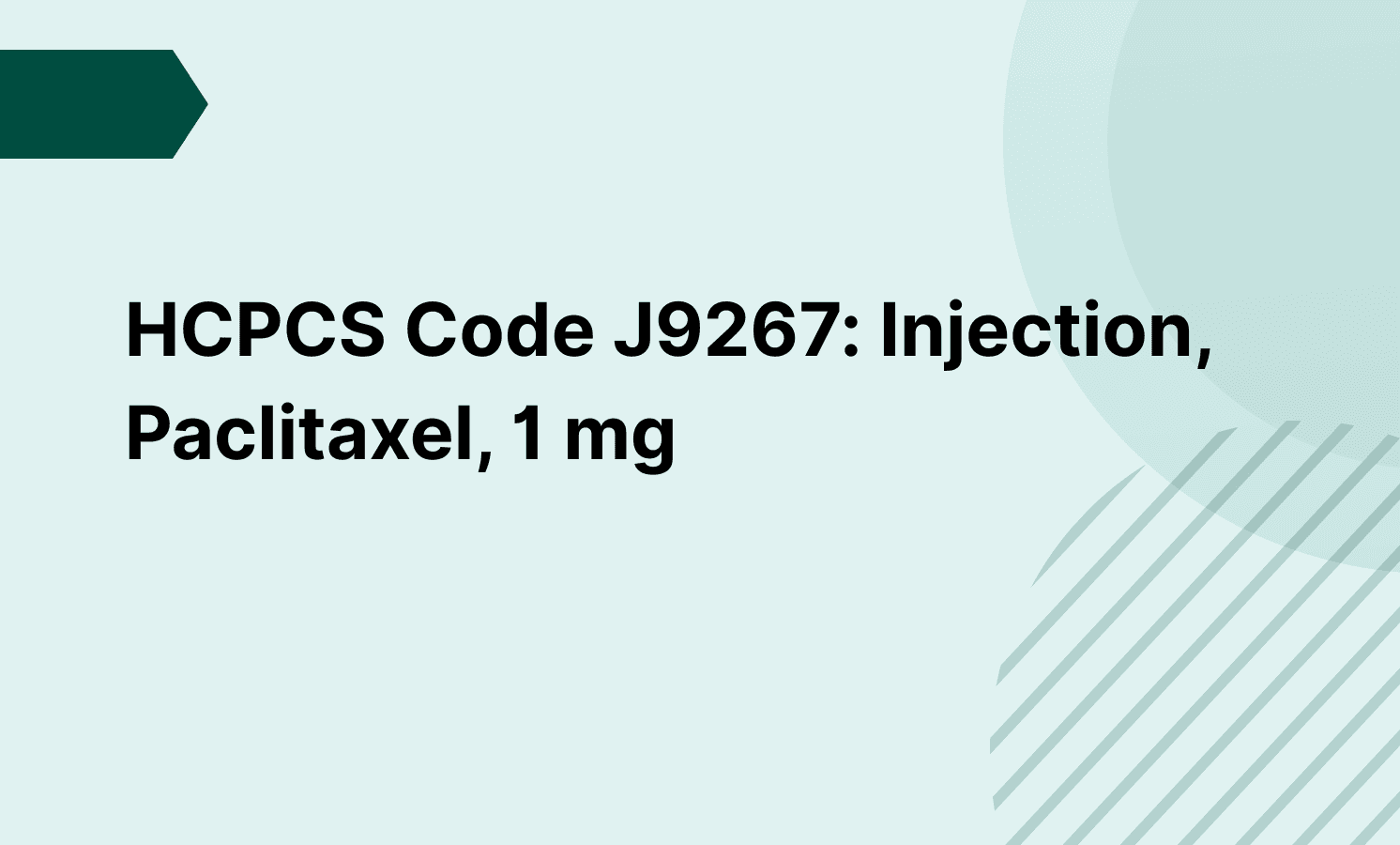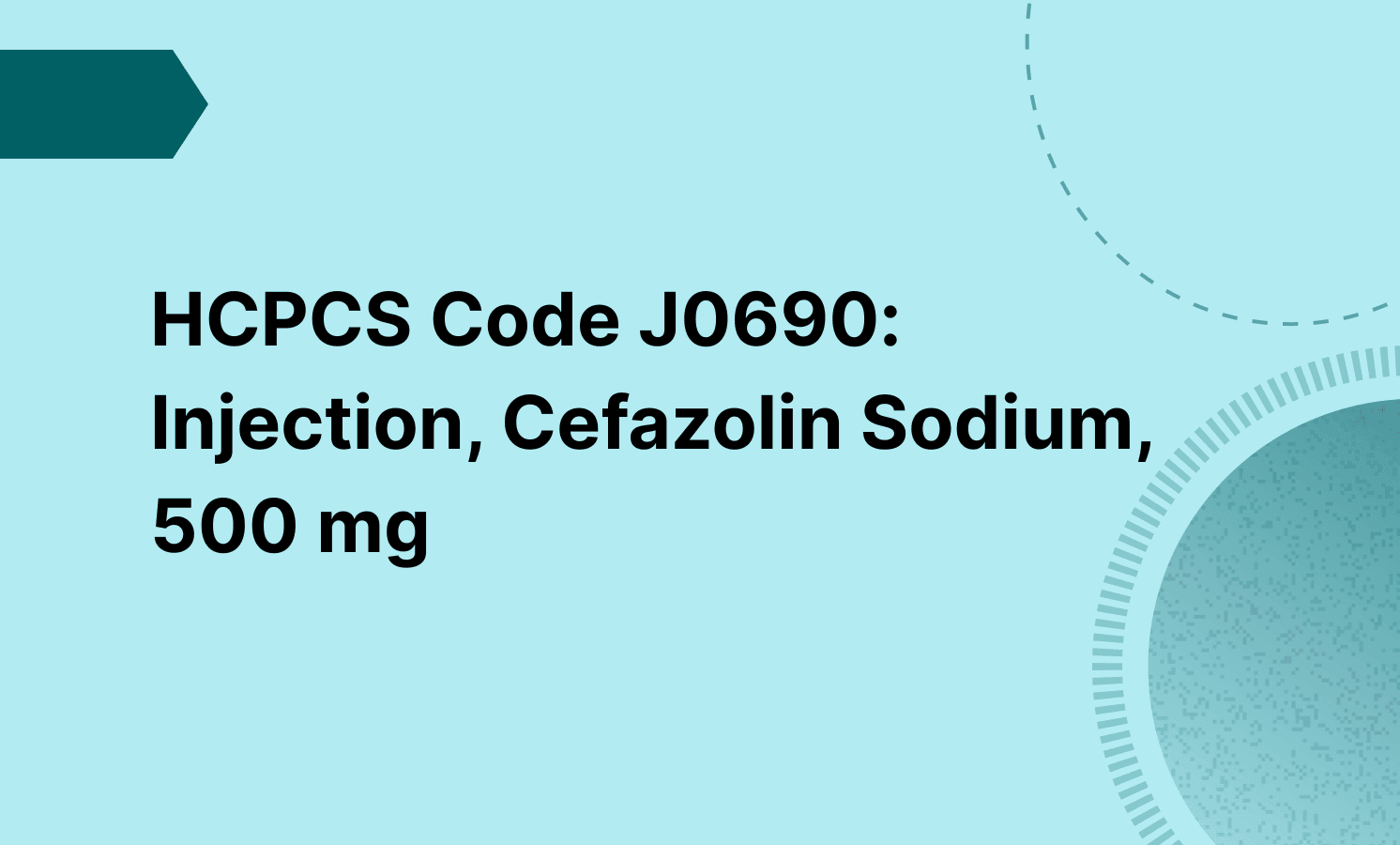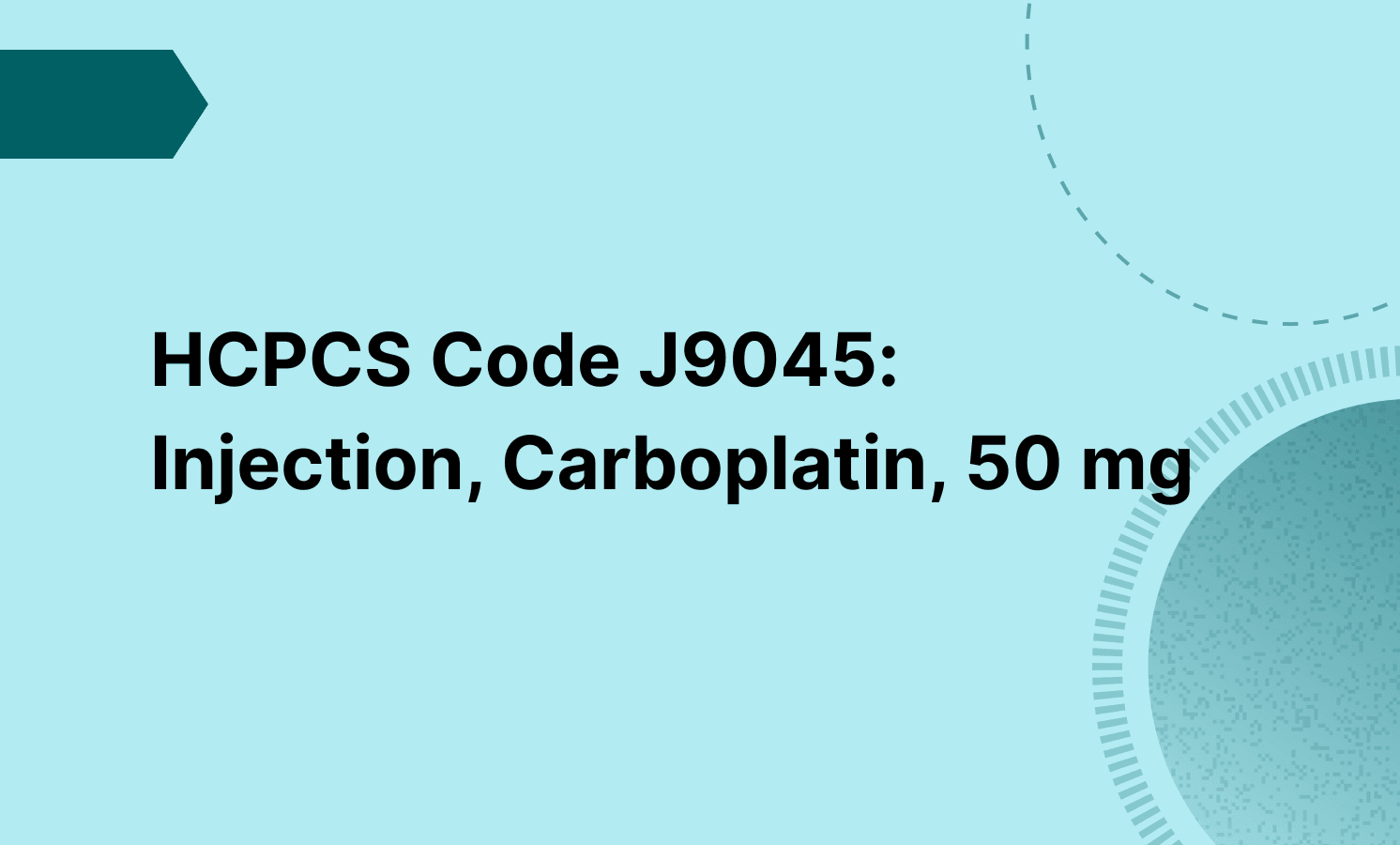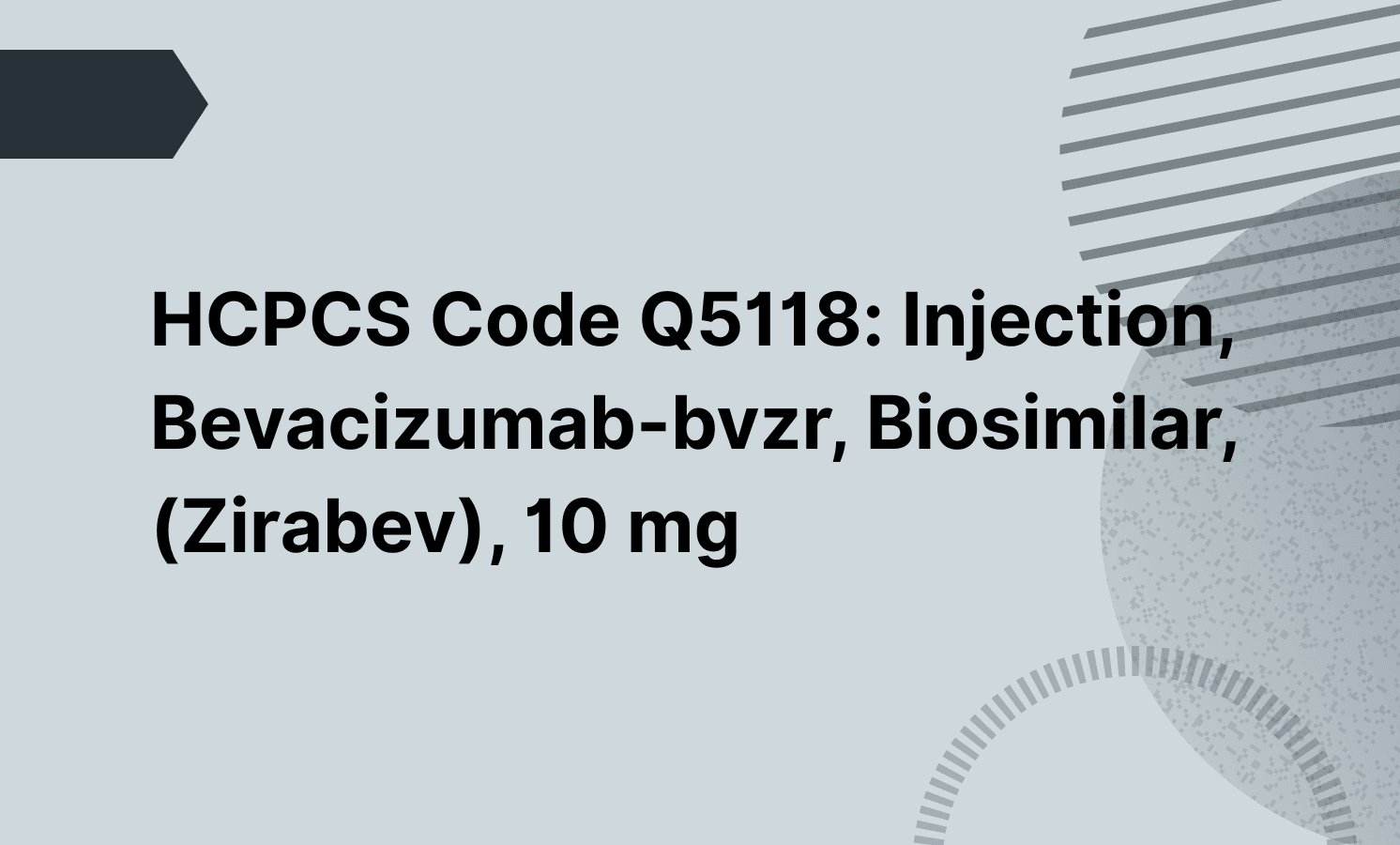CPT code 99205 is used for patients with acute or chronic conditions posing an immediate threat to life or physical function, such as acute myocardial infarction, pulmonary embolism, severe neurological changes (e.g., seizures), or unstable chronic illnesses with severe progression or treatment complications.
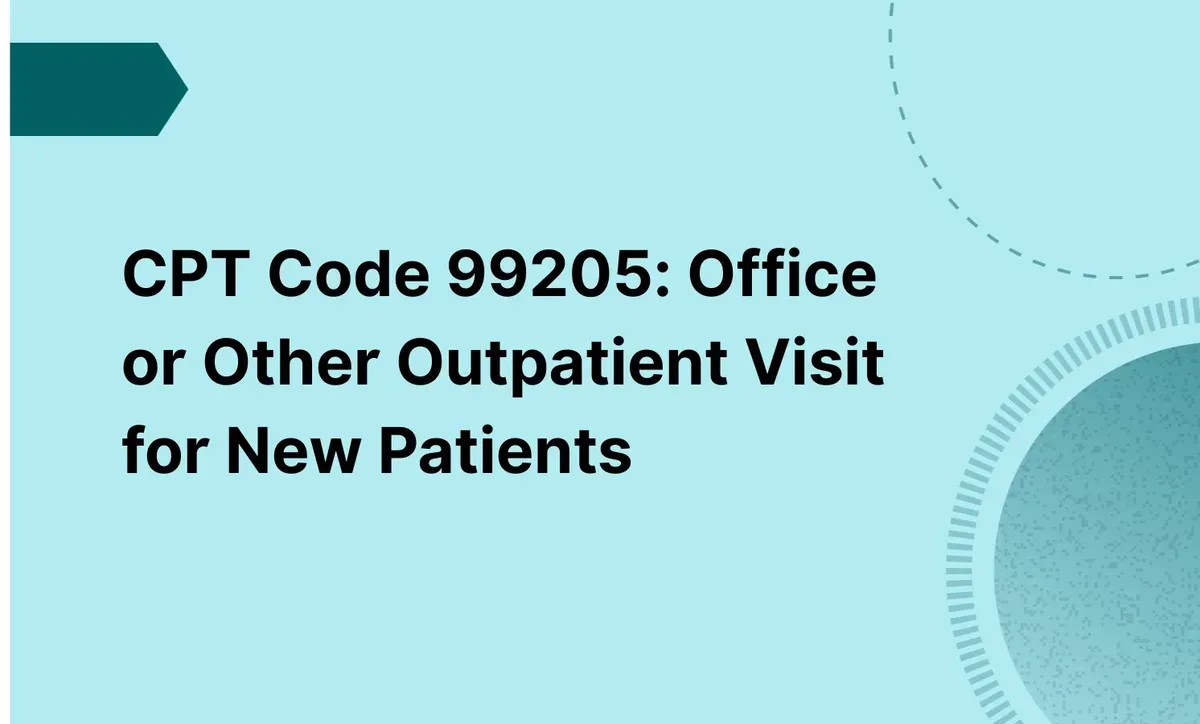
CPT Code 99205: Office or Other Outpatient Visit for New Patients
Learn how to effectively use the 99205 CPT code when working with new patients for proper coding and accurate reimbursement.
Frequently asked questions
99205 requires high-complexity medical decision-making, which takes 60-74 minutes total, while 99204 involves moderate-complexity decision-making, which takes 45-59 minutes. Both codes demand a comprehensive history and examination, but 99205 is reserved for higher-risk cases, like life-threatening conditions.
The total time for 99205 ranges between 60-74 minutes, encompassing face-to-face care, documentation, and care coordination activities on the visit date. Providers can select this code based on time alone or combine it with high-complexity medical decision-making.
EHR and practice management software
Get started for free
*No credit card required
Free
$0/usd
Unlimited clients
Telehealth
1GB of storage
Client portal text
Automated billing and online payments

